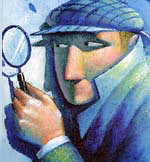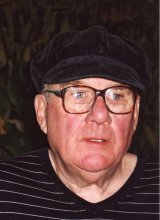
|
|
||||
|
Today is February 23rd , 2026
FRAUD ALERT
QUEBECRECOMMENDATIONBooks |
MYTHS OF LAWYERSPAGE 1 of 3Lawyers today are in a moral crisis. The popular perception of the lawyer, both within the legal community and beyond, is no longer the Abe Lincoln of American mythology, but is often a greedy, cynical manipulator of access and power. It is important to note that the loss of professionalism is more than merely the emergence of win-at-all-cost strategies and a scramble for personal wealth. It is something more profound-a loss of professional community and soul. Many lawyers in fact are plagued with addictions -money, alcohol, sex, and drugs-thus many are committing crimes of their own to maintain their status quo. Lawyers, whether practice or non- practice, are a section of the population that separates themselves from the rest of the lot. Lawyers have intitlements that no others have and as result they are place in positions where they abuse their power. If the law profession is to survive it must revive their creative capacities and develop a meaningful, professional mythology-one based on a deeper understanding of professionalism and a broader, more compassionate ideal of justice. They also must recognize that keeping the monopoly, wherein it is imbedded in law, only makes the rest of the population want to revolt against them. Until lawyers do not take a positive stand and continue to participate in the erosion of our democracy, the profession of lawyerism will soon be a thing of the past. The legal profession is on the brink of fundamental change according to author Richard Susskind, in the book, entitled, The End of Lawyers? In the first of six draft excerpts from his forthcoming book, Richard Susskind lays down a challenge to all lawyers. THE END OF LAWYERS All of us, whether professionals or not, must decide which master we serve. In the case of lawyers, it is without doubt that their master is money and as a result, there cannot be any honesty with any of them. Mr. David Marston, who served on different US administration as attorney general, including serving on the administration of George W. Bush as A-G, wrote a book entitled, Malice-Aforethought: How Lawyers Use Our Rules to Get Nch, Get Sex, Get Even, and Get Away Wth It. Mr. Marston attacks the lack of ethics of the legal profession. He believes that attorneys breaching their professional code of ethics fall into four (4) categories: i. Lawyers who use their legal training to break the law or commit crimes in the course of their practice. ii. Lawyers who violate any important ethical rule of the legal profession. Not surprisingly, there are big rules and little rules and lots of technicalities, so the focus here will be on significant professional misconduct, not a minor infractions. iii. Lawyers who use their legal training to do things they should be ashamed to tell their mothers. iv. Lawyers who cooperate when they know there is a bad lawyer at work. Such lawyers may go through the steps but will not go up against the system on behalf of his client. These David Marston calls, "Unindicted Co-Conspirators" It is worth asking ourselves the question as to whether we are also "Unindicted Co-Conspirators" when we choose to not go up against the system when we know the truth. The following is worth keeping in mind, when we see ourselves fall on the wayside: Do not participate in the unfruitful deeds of darkness, but instead expose them; for it is disgraceful even to speak of the things which are done by them in secret; But all things become visible when they are exposed by the light, for everything that becomes visible is light. Ephesians ch. 5-11 to 5-13 The following are the myths:Lawyers are liars. Untrue. Lawyers are not trained to lie. They are trained to twist the truth. There is a huge difference. You can be caught in a lie. When you twist the truth, you cannot be caught; it's just a matter of interpretation. A friend who teaches tax law gives the same introductory speech at the beginning of every semester. He asks, "are there any accountants in the class?" Two or three hands go up. He says to them, "You're going to have trouble in this class. To you, numbers describe the truth. In tax law, there is no one truth. You push and pull on the numbers until they say what you want them to say." If you can make numbers say what you want, are words any problem? The distinction is important, because we normally decide if someone is lying by looking for psychological cues: shifty eyes, covering the mouth, or dodging questions. When someone is professionally trained to twist the truth, they don't give those signs. When you speak to a lawyer, don't worry too much about lies - but always, always remember that you are in the reality distortion zone. Lawyers are trained to think clearly. Untrue. Lawyers -in terms of coming to the right conclusion about the real world -are some of the worst thinkers on the planet Earth. Because of their tendency to twist reality, they have a fantastic gift for sounding logical while missing the broad side of the barn. It is more accurate to say lawyers are trained to think logically within the framework of law -as chess players think within the framework of chess. (There is a very old saying, "The law sharpens a mind by narrowing it.") Would you go to a chess player for advice on your life? On business? Somewhere, I can hear somebody answering, "Hmm, well, umm ... if he had a nice pinstripe suit ... if she drove a BMW ... The main problem with lawyers is high bills. Completely untrue. The main problem with lawyers is that most of what they do is useless, or actually harmful to their own client. U.S. President Thomas Jefferson -a lawyer himself -said in 1807 that, "It is the business of a lawyer to question everything, produce nothing, and bill by the hour." Billing, you notice, comes last. And not much has changed with lawyers. Of the 27,342 lawyer jokes out there, most deal with high bills, lies, and dishonesty. More |
LEGAL ABUSE SYNDROME |
||
Justice is a conscience, not a personal conscience but conscience of the whole of the humanity.
Those who clearly recognize the voice of their own conscience usually recognize also the voice of Justice.
Alexander Solzhenitsyn

